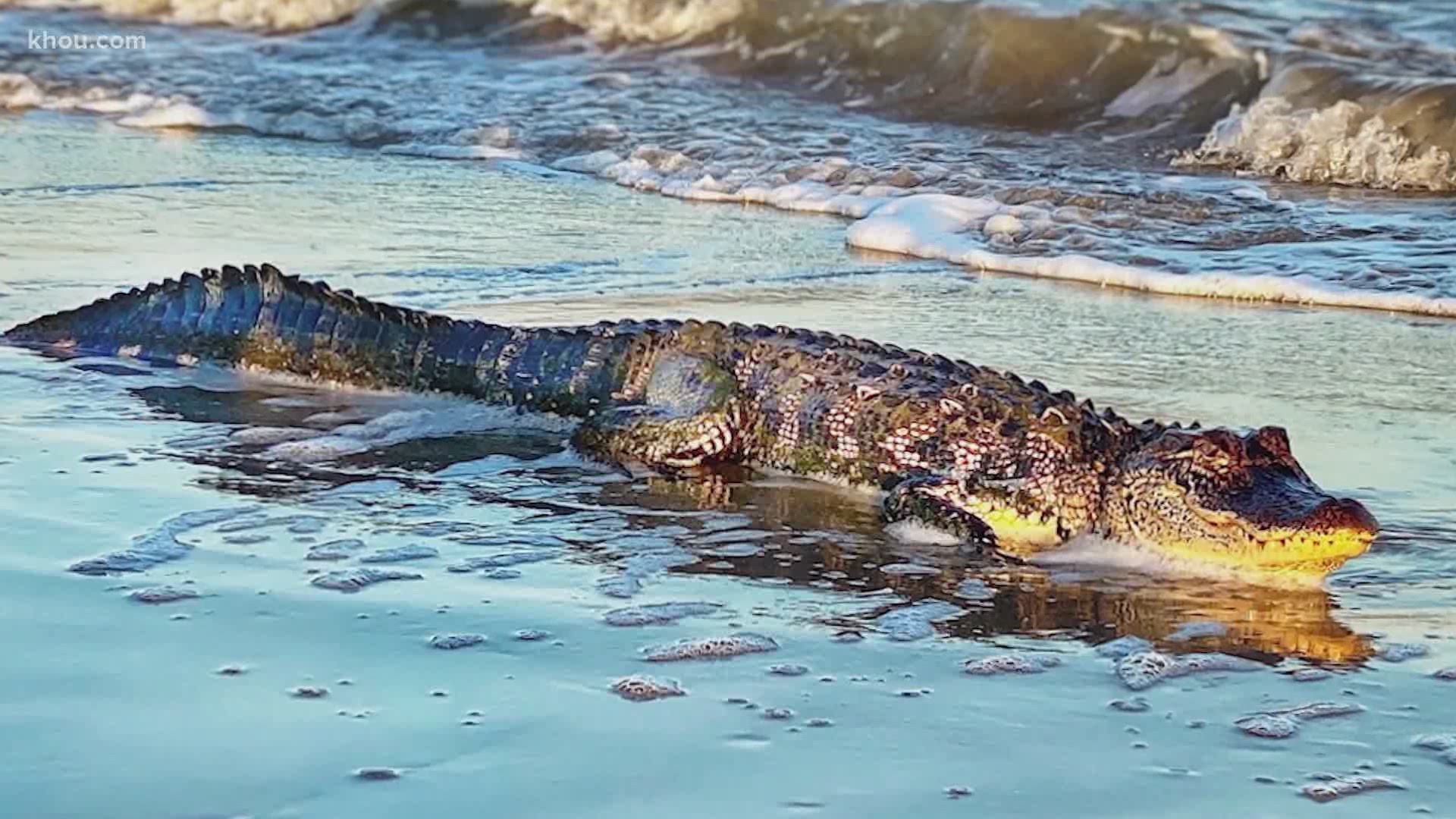GALVESTON, Texas — As the weather warms up, people flock to beaches along the Texas Gulf Coast.
But humans and their furry pets aren't the only visitors in search of sun and sand: some beach-goers are scaly, with mouths full of sharp teeth.
Harvey Warren, of Beaumont, spotted an unexpected visitor on Monday at McFaddin Beach, just north of Galveston -- a 6- to 7-foot alligator.
"(He) seemed to be kind of sunning himself, didn’t seem to be very aggressive," Warren said.
Warren pulled out his camera and started snapping pictures.
“I seemed to not have irritated him, I just seemed to be more of a distraction to him," he said. “I don’t think I’ve seen one just lounging on the shoreline so I thought that would be interesting.”
Warren wasn't the only one who spotted the gator on Monday. Facebook user Brent Franklin posted these pictures of the same roaming reptile:
Alligators on Texas beaches
But it turns out, finding alligators on the shore is not as uncommon as you'd think.
Texas Parks and Wildlife says it happens a couple times a year, and they can only survive in saltwater for a few hours -- maybe up to a few days.
"It’s not a concern as long as you keep your distance," Dr. Lene Peterson, a researcher with the Texas A&M Galveston Marine Biology Department. “We want to understand whether that gradual change in freshwater habitats for the alligator -- will that eventually affect alligators over time?”
Peterson said her goal is to determine whether gators will adapt or move habitats as salinity increases in natural alligator territories from either storms or drought.
She said alligators could get pushed into more northern ranges of their traditional habitats.
There are two main reasons an alligator may be found in the ocean, Peterson said.
It could have been flushed out by flood waters that moved it down river or it's looking for food.
"These are foraging excursions that normally last a few hours and then they will return to their freshwater habitats," she said.
Warren said he's seen alligators on the beach before -- and they're something he said he'd be happy to photograph again.
"(It's) just part of beach life," he said. "That’s the reason I take the pictures, just kind of show what goes on down at the beach.”
Experts say it's rare to encounter an alligator on your beach trip, but if you do, stay away. If you think it's unsafe, you can report it to Texas Parks and Wildlife.
ALSO POPULAR ON KHOU.COM



